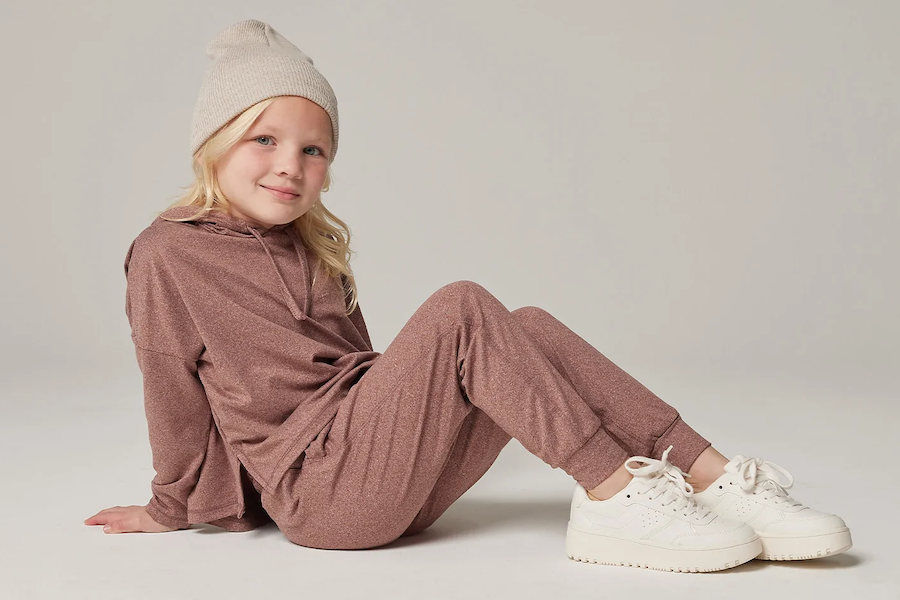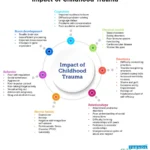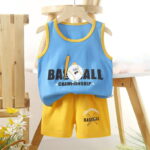Yes, kids’ clothing brands often feature both classic and modern styles. This variety caters to diverse tastes and occasions.
The world of children’s fashion offers a delightful blend of classic and modern styles, appealing to both parents and kids. Classic styles often include timeless pieces like polo shirts, denim jeans, and elegant dresses, which remain popular for their versatility and durability.
Modern styles showcase trendy designs, vibrant colors, and playful patterns that capture children’s imaginations. Brands understand the need for functional clothing that allows for active play while also embracing the latest fashion trends. By combining these elements, children’s clothing brands create collections that satisfy both traditional preferences and contemporary flair, ensuring that every child can express their unique personality through their wardrobe choices.
Table of Contents
Introduction To Kids Fashion
Kids fashion combines fun and functionality. It reflects trends and childhood needs. Parents seek styles that are both practical and stylish. Brands today offer a mix of classic and modern designs.
The Evolution Of Children’s Wear
Children’s clothing has changed over the years. Styles have shifted from simple to more elaborate. Let’s look at some key points:
- Early 1900s: Simple and practical designs.
- Mid 20th Century: Bright colors and playful patterns.
- 1980s: Bold graphics and themed outfits.
- 2000s: Casual wear gains popularity.
Today, children’s fashion includes elements from all these eras. Classic pieces often blend with modern trends.
Current Landscape
The current kids’ fashion market is diverse. Brands cater to various tastes and preferences. Here are some trends:
| Style Type | Description |
|---|---|
| Classic Styles | Timeless pieces, often inspired by vintage fashion. |
| Modern Styles | Trendy designs that reflect current pop culture. |
| Eco-Friendly | Clothing made from sustainable materials. |
| Gender-Neutral | Styles that appeal to all children, regardless of gender. |
Parents now have many options. They can choose between classic looks and trendy designs. Kids express themselves through fashion choices. This makes shopping exciting for everyone.
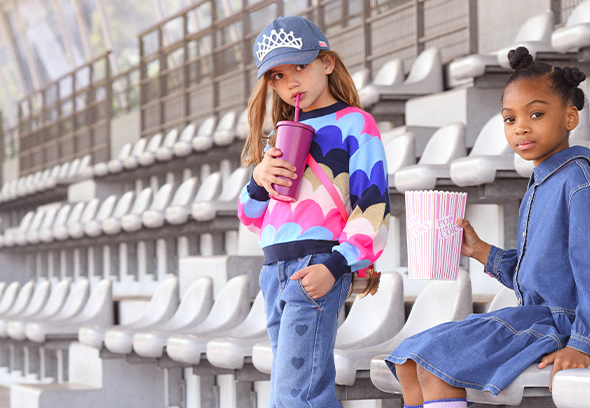
Credit: www.facebook.com
Balancing Timeless With Trendy
Kids’ clothing brands are merging classic and modern styles. This blend creates unique fashion options. Parents seek both durability and style. Kids want to express their personalities. Finding the right balance is essential.
The Importance Of Classic Styles
Classic styles offer several benefits:
- Durability: Classic clothes last longer.
- Versatility: They can match many outfits.
- Timelessness: Styles never go out of fashion.
Parents appreciate classic clothing. It provides comfort and ease of care. Brands often use quality materials for these timeless pieces.
Incorporating Modern Trends
Modern trends make kids’ clothing exciting. They often include:
- Bold colors: Bright shades attract attention.
- Fun patterns: Unique designs express individuality.
- Innovative cuts: Styles that allow movement and play.
Brands mix modern elements with classic pieces. This combination keeps children stylish and comfortable. Kids feel confident in trendy outfits.
Table of Balance:
| Classic Styles | Modern Trends |
|---|---|
| Simple designs | Bold graphics |
| Neutral colors | Bright hues |
| Quality materials | Eco-friendly fabrics |
Combining these styles allows kids to shine. They can enjoy timeless classics with a trendy twist.
Popular Kids Clothing Brands
Kids clothing brands offer a mix of classic and modern styles. Parents seek brands that blend comfort with trendy designs. These brands cater to various tastes and budgets. Some focus on timeless pieces, while others highlight the latest trends. Let’s explore the top players in this vibrant market.
Leading The Market
Several brands dominate the kids clothing scene. They are known for quality and style. Here are some top names:
- Gap Kids: Offers classic yet stylish options for every occasion.
- H&M: Known for affordable, trendy designs that appeal to kids.
- Carter’s: Specializes in comfortable, durable everyday wear.
- Old Navy: Combines playful styles with budget-friendly prices.
- Gymboree: Focuses on vibrant colors and fun patterns.
These brands lead by providing a variety of styles. They understand the needs of kids and parents alike. Each offers unique options for all occasions, from playdates to family gatherings.
Emerging Names
New brands are shaking up the kids clothing market. They bring fresh ideas and creative designs. Here are some emerging names to watch:
| Brand Name | Style Focus |
|---|---|
| Mini Rodini | Sustainable fashion with playful prints. |
| Tea Collection | Globally inspired styles for unique looks. |
| Primary | Classic colors and simple designs for everyday wear. |
| RuggedButts | Durable clothing designed for active kids. |
These emerging brands offer innovative styles. They focus on sustainability and creativity. Parents can find unique pieces that stand out. The variety ensures kids express their individual style.
Design Philosophy Behind Kids’ Wear
The design philosophy behind kids’ wear blends creativity, comfort, and functionality. Brands aim to create clothing that reflects children’s vibrant personalities. They balance classic styles with modern trends to meet diverse tastes.
Brand Vision
Each kids’ clothing brand develops a unique vision. This vision shapes their designs, materials, and overall aesthetic. Here are some key elements:
- Comfort: Soft fabrics and relaxed fits keep kids happy.
- Durability: Clothes must withstand active play and frequent washing.
- Style: A mix of classic and trendy pieces appeals to parents and kids.
- Inclusivity: Brands offer a range of sizes and styles for all children.
Brands often collaborate with designers to create exclusive collections. This helps them stay current while maintaining timeless elements. The vision reflects a commitment to quality and style.
Consumer Expectations
Parents have high expectations for kids’ clothing. They want clothes that are fashionable yet practical. Here are some common consumer demands:
- Affordability: Parents seek value without compromising quality.
- Versatility: Outfits should work for various occasions.
- Sustainability: Eco-friendly materials are increasingly important.
- Easy Care: Machine-washable items save time and effort.
Brands must listen to these expectations. They adapt their collections to meet changing demands. This balance keeps kids stylish and parents satisfied.
| Aspect | Classic Styles | Modern Styles |
|---|---|---|
| Materials | Natural fabrics, timeless patterns | Innovative blends, bold prints |
| Design | Simple cuts, traditional silhouettes | Unique shapes, playful details |
| Target Audience | Parents who value tradition | Parents who embrace trends |
By understanding both classic and modern styles, brands can create a balanced wardrobe for kids. This thoughtful design philosophy ensures kids feel good and look great.
Material And Sustainability
Choosing children’s clothing involves more than just style. Parents care about the environment too. Sustainable materials are now a priority for many kids’ clothing brands. Eco-friendly fabrics help protect our planet while keeping kids comfortable.
Eco-friendly Choices
Kids’ clothing brands are embracing eco-friendly materials. Here are some popular options:
- Organic Cotton: Grown without harmful pesticides.
- Bamboo: Naturally antibacterial and biodegradable.
- Recycled Polyester: Made from recycled plastic bottles.
- Hemp: Requires little water and no chemicals.
These materials reduce environmental impact. They offer a healthier choice for children’s sensitive skin.
Durability And Comfort
Kids are active. Their clothes need to withstand wear and tear. Durable materials ensure longevity while providing comfort.
| Material | Durability | Comfort Level |
|---|---|---|
| Organic Cotton | High | Soft and breathable |
| Bamboo | Medium | Soft with moisture-wicking |
| Recycled Polyester | High | Stretchy and lightweight |
| Hemp | Very High | Softens with each wash |
Comfort is key for kids. Soft fabrics allow freedom to move. Durable clothing lasts longer, saving money. Sustainable choices make parents feel good. They protect both children and the planet.
Cultural Influences On Children’s Fashion
Cultural influences shape children’s fashion in many ways. Styles reflect history, traditions, and global trends. Brands mix classic and modern looks to cater to diverse tastes. Each piece tells a story of its origins.
Global Trends
Fashion for kids often follows global trends. These trends can come from various sources, including:
- Popular movies and TV shows
- Influencer culture on social media
- Fashion weeks around the world
- International collaborations between brands
Kids want to wear what they see on screens. This creates a demand for trendy clothing. Brands often respond by designing clothes that reflect these trends. Bright colors, fun graphics, and unique styles are common.
Local Traditions
Local traditions play a big role in children’s fashion. Each culture has unique clothing styles. These styles often include:
- Traditional patterns and fabrics
- Specific colors representing cultural significance
- Garments worn during festivals or celebrations
Brands incorporate these elements into modern designs. This creates a blend of old and new. For example:
| Culture | Traditional Clothing | Modern Adaptation |
|---|---|---|
| Japanese | Kimono | T-shirts with kimono prints |
| Mexican | Huipil | Dress with huipil patterns |
| Indian | Lehenga | Casual skirts with lehenga designs |
Combining traditional and modern styles allows children to express their identity. It helps them connect with their roots while staying fashionable.
Technology’s Role In Fashion
Technology greatly influences kids’ clothing brands today. It blends classic and modern styles. Brands use tech to create unique designs and enhance shopping experiences.
Innovations In Manufacturing
Manufacturing processes have evolved significantly. New technologies help brands produce clothing faster and more efficiently.
- 3D Printing: This allows custom designs and quick prototyping.
- Sustainable Materials: Brands now use recycled fabrics for eco-friendly options.
- Smart Fabrics: These fabrics adjust to temperature changes and improve comfort.
These innovations cater to both classic tastes and modern trends. Brands can create clothes that kids love while being responsible.
Online Shopping Experience
Online shopping has transformed how parents buy clothes for their kids. The ease of browsing from home is invaluable.
| Feature | Benefit |
|---|---|
| Virtual Try-Ons | See how clothes look before buying. |
| User Reviews | Learn about the quality from other parents. |
| Easy Returns | Return items that don’t fit or meet expectations. |
Brands ensure a seamless shopping experience. This keeps kids stylish and parents happy.
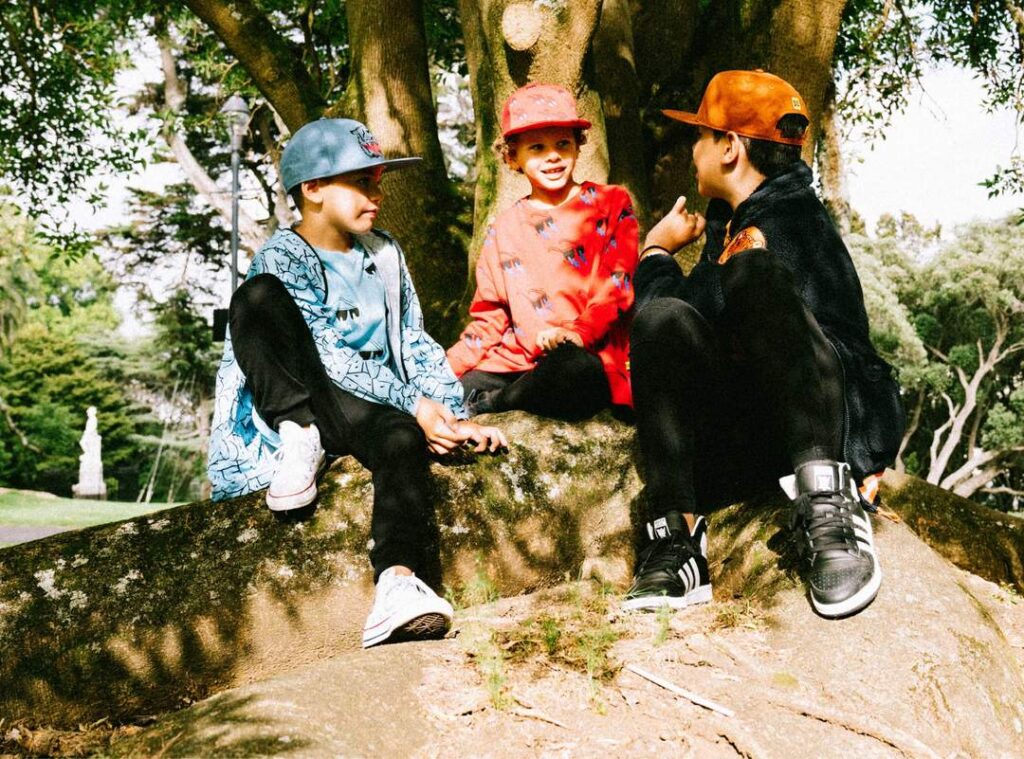
Credit: www.facebook.com
The Impact Of Social Media
Social media plays a big role in kids’ fashion today. It connects brands with young audiences. Kids see trendy outfits online every day. This influences their style choices. Brands must adapt to these changes.
Trendsetting Via Platforms
Platforms like Instagram and TikTok are powerful. They showcase styles quickly. Kids follow their favorite stars and influencers. They want to wear what they see online.
- Short videos highlight trendy outfits.
- Photos showcase unique styles.
- Kids share their looks with friends.
Brands notice these trends. They create collections based on popular styles. This mix of classic and modern appeals to kids.
Influencer Collaborations
Influencers shape kids’ fashion choices. They partner with clothing brands. This collaboration brings fresh ideas to the market.
| Influencer | Brand | Style Impact |
|---|---|---|
| Fashionista Kids | Cool Kids Wear | Modern trends |
| Mini Style Icons | Classic Threads | Timeless fashion |
Kids love these collaborations. They trust influencers to pick stylish outfits. This trend helps brands blend classic and modern styles. Parents also appreciate this mix.
Parental Perspectives On Kids’ Clothing
Parents often juggle between comfort and style in kids’ clothing. Balancing these two aspects can be challenging. Many brands offer a mix of classic and modern styles to cater to diverse preferences. Understanding what parents prioritize helps brands create better options.
Prioritizing Comfort And Style
Comfort is crucial for kids. They need to move freely while playing. Parents often look for fabrics that are soft and breathable. Here are some factors parents consider:
- Material: Cotton and bamboo are popular choices.
- Fit: Loose-fitting clothes allow easy movement.
- Durability: Kids’ clothing should withstand rough play.
Style matters too. Kids want to look cool. Parents often seek clothes that reflect current trends while keeping comfort in mind. A mix of classic styles, like polos and jeans, and modern trends, like graphic tees and joggers, appeals to both kids and parents.
Budget Considerations
Budget plays a significant role in clothing choices. Parents want quality without overspending. Here’s how they approach their budget:
| Price Range | Quality | Brand Examples |
|---|---|---|
| Under $20 | Basic quality, often seasonal | Old Navy, Target |
| $20 – $50 | Good quality, trendy designs | Gap, HM |
| Over $50 | High quality, premium styles | Ralph Lauren, Boden |
Many parents shop during sales or use coupons. They want to maximize their budget while ensuring their kids look great. A well-balanced wardrobe can be created without breaking the bank.
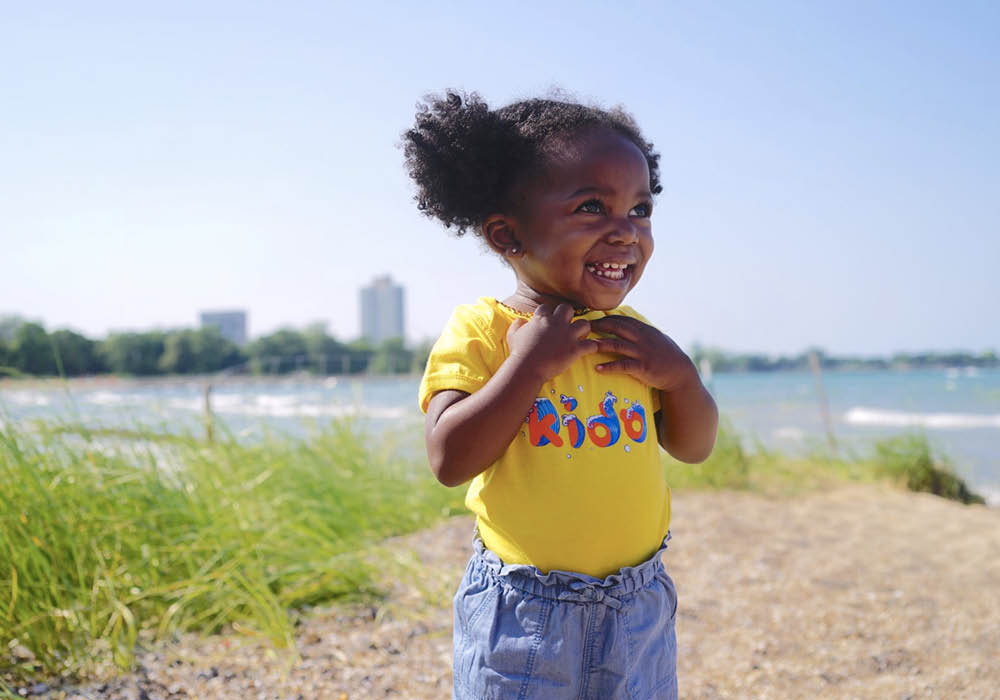
Credit: www.dianiboutique.com
Kids’ Involvement In Fashion Choices
Kids today have a strong say in their clothing choices. They blend classic and modern styles, creating unique looks. This involvement boosts their confidence and self-expression.
Empowering Through Selection
Allowing kids to choose their outfits empowers them. Here are some reasons why:
- Boosts Confidence: Making choices helps kids feel capable.
- Encourages Creativity: Mixing styles sparks their imagination.
- Promotes Independence: Choosing outfits builds decision-making skills.
Parents can support this journey by providing options. Offer a range of styles, from classic to trendy. Let kids explore their preferences. This encourages them to express themselves through fashion.
The Influence Of Peers
Friends play a big role in kids’ fashion choices. Here’s how:
- Trends: Kids often follow what their friends wear.
- Social Media: Platforms show popular styles among peers.
- Peer Pressure: Kids may feel compelled to fit in.
Brands recognize this influence. They create collections that resonate with children. This includes both timeless pieces and modern trends. Kids enjoy being part of the fashion conversation.
| Style Type | Example | Impact |
|---|---|---|
| Classic | Button-up shirts | Timeless appeal, easy to mix |
| Modern | Graphic tees | Expresses personality, trendy |
Seasonal Collections And Their Appeal
Kids’ clothing brands often release seasonal collections. These collections cater to different weather conditions. They combine classic and modern styles. Parents appreciate the variety and functionality.
Summer And Winter Lines
Summer and winter lines showcase unique styles. Each season brings distinct designs and colors.
- Summer Lines
- Bright colors
- Light fabrics
- Fun patterns
- Winter Lines
- Warm materials
- Layered outfits
- Rich, deep colors
Summer outfits often include:
- T-shirts
- Shorts
- Dresses
Winter styles typically feature:
- Coats
- Hats
- Boots
Festive And Occasion Wear
Festive and occasion wear is important for special events. Kids need outfits for birthdays, holidays, and ceremonies.
| Occasion | Style | Key Features |
|---|---|---|
| Birthdays | Party dresses and suits | Colorful, playful designs |
| Holidays | Festive outfits | Seasonal themes and accessories |
| Weddings | Formal attire | Elegant fabrics and styles |
These outfits allow kids to express their personalities. They reflect both tradition and modernity. Parents find joy in selecting the perfect ensemble.
Challenges Facing Kids Clothing Brands
Kids clothing brands face many challenges today. Balancing classic and modern styles is one major issue. Brands must also adapt to changing consumer needs. Understanding these challenges can help brands succeed.
Navigating Fast Fashion
Fast fashion has transformed the kids’ clothing market. Brands must keep up with trends that change quickly. This creates pressure to produce stylish clothes at lower prices.
- Quick production cycles
- High competition
- Changing consumer preferences
Brands risk losing their identity by focusing too much on trends. Many parents seek durable clothing that lasts. Balancing trendy items with classic styles is crucial for success.
Maintaining Brand Identity
Kids clothing brands must define their unique identity. This helps them stand out in a crowded market. A strong brand identity builds customer loyalty.
| Brand Identity Elements | Importance |
|---|---|
| Design Style | Reflects brand values |
| Quality of Materials | Ensures durability |
| Pricing Strategy | Affects target market |
Brands should focus on their mission and vision. This helps create a loyal customer base. Balancing modern trends with timeless designs is vital.
Future Directions In Kids Fashion
The world of kids fashion is evolving quickly. Brands are blending classic and modern styles. This blend allows for unique expressions of personality. New trends are emerging that cater to comfort and creativity.
Predictions And Innovations
Experts predict exciting changes ahead in kids fashion. Here are some key predictions:
- Sustainable Materials: Eco-friendly fabrics will rise in popularity.
- Smart Clothing: Technology will integrate into clothing, offering more features.
- Gender-Neutral Options: More brands will offer unisex styles.
- Customization: Kids will have options to personalize their clothes.
Innovations will shape how kids express themselves. Brands will focus on creativity and comfort. They aim to create clothes that encourage movement.
Staying Relevant
Brands must adapt to changing trends. Here are some strategies they will use:
| Strategy | Description |
|---|---|
| Collaborations | Partnering with popular figures or shows. |
| Social Media Engagement | Using platforms to connect with kids and parents. |
| Feedback Loops | Listening to customer feedback for new designs. |
Staying relevant requires constant evolution. Brands must listen to young voices. This ensures they meet the needs of modern families.
Kids fashion will continue to blend the old and the new. Future styles will reflect individuality and fun.
Frequently Asked Questions
Do Kids Clothing Brands Offer Classic Styles?
Many brands focus on timeless designs, catering to those who prefer classic aesthetics for children’s clothing.
Are Modern Styles Available In Kids Clothing?
Yes, numerous brands showcase trendy and contemporary styles, appealing to fashion-forward parents and kids alike.
How To Choose Between Classic And Modern Styles?
Consider your child’s personality and comfort. Mix both styles for a unique wardrobe that suits any occasion.
What Are Popular Brands For Kids’ Clothing Styles?
Brands like Gap Kids, Zara Kids, and Mini Boden offer a diverse range of classic and modern clothing options.
Conclusion
Kids’ clothing brands successfully blend classic and modern styles. This variety allows parents to choose outfits that reflect personal taste and current trends. By offering both timeless designs and contemporary looks, these brands cater to diverse preferences. Ultimately, this fusion ensures every child can express their unique style confidently.



